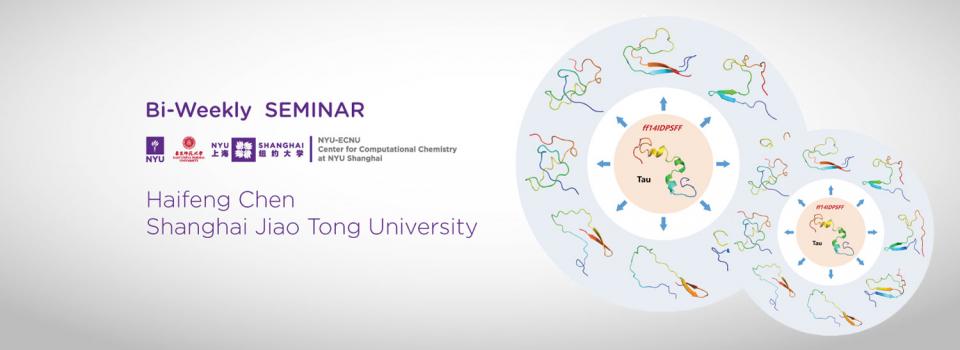
Abstract:
Intrinsically disordered proteins (IDPs) or intrinsically disordered regions have not fixed tertiary structure, but play key roles in signal regulation, molecule recognition, and drug target. However it is difficult to study the structure and function of IDPs by traditional experimental methods because of their diverse conformations. Limitations of current generic protein force fields and solvent models were reported in the previous simulations of IDPs. We have also explored to overcome these limitations by developing ff99IDPs and ff14IDPs force fields to correct the dihedral distribution for eight disordered promoting residues often observed in IDPs and found encouraging improvements. Here, we extend our correction of backbone dihedral terms to all 20 naturally occurring amino acids in the IDP-specific force field (ff14IDPSFF) to further improve the quality in the modeling of IDPs. Extensive tests of seven IDPs and 14 unstructured short peptides show that the simulated Cα chemical shifts with the ff14IDPSFF force field are in quantitative agreement with those from NMR experiment and are more accurate than the base generic force field and also our previous ff14IDPs that only corrects the eight disorder-promoting amino acids. The influences of solvent models were also investigated and found to be less important. Finally our explicit solvent MD simulations further show that ff14IDPSFF can still be used to model structural and dynamical properties of two tested folded proteins, with a slightly better agreement in the loop regions for both structural and dynamical properties. These findings confirm that the newly developed IDP-specific force field ff14IDPSFF can improve the conformer sampling of intrinsically disordered proteins.
Biography:
Dr. Haifeng Chen serves as Associate Professor of Shanghai Jiao Tong University (SJTU). He got his Ph.D. in Computational Chemistry from the University of Paris, France, master’s degree from Sichuan University, and bachelor’s degree from Xi’an Jiao Tong University. Then he finished Post-doctoral Fellowship in University of California, Irvine, USA. Since joining SJTU, he has published 52 papers (41 as corresponding author and 1 first author) and one book chapter. Currently, he is the PI or co-PI of four research grants and has finished five grants. He has been teaching one course for undergraduates and one course for graduates each year. He has also served as associate editor of two journals: Chemical Biology & Drug Design and Frontiers in Molecular Biosciences. His research interests are focused on force field development for intrinsically disordered proteins, folding mechanism of intrinsically disordered proteins, and interaction mechanism between receptors and ligands.
Bi-Weekly Seminar Series by the NYU-ECNU Center for Computational Chemistry at NYU Shanghai


